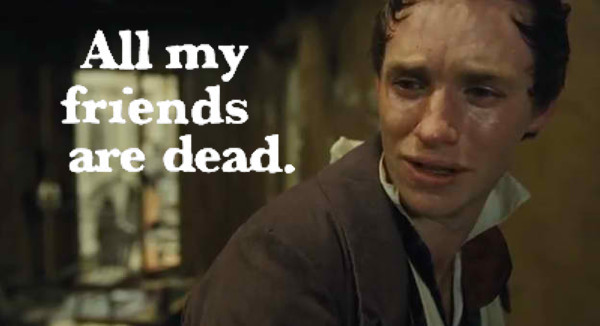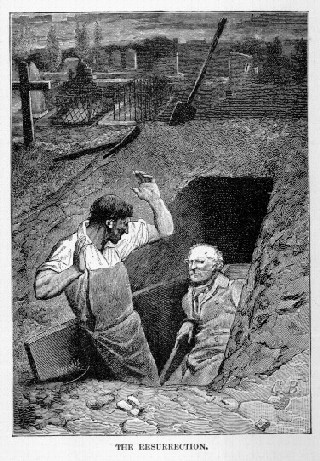While the musical takes liberties in condensing a year of Marius and Cosette’s courtship into two days, there is precedent in the novel for love at first sight…or at least, love at first glance.
Marius notices Jean Valjean and Cosette frequenting the same park as him for over a year, but pays them no mind until he stops going for a while, then comes back and she’s hit puberty. Even then, he doesn’t really notice until one day Marius’ and Cosette’s eyes meet. *ZAP!*
Suddenly he’s very self-conscious. The next day, he starts wearing his best clothes when going to the park, making sure he gets seen by her, and then starts thinking, huh, maybe the gentleman might think I’m acting a little odd.
One day they walk by his bench, and she glances at him. He’s overcome…but also worried because his boots are dusty and he’s sure she must have noticed.
They steal glances at each other, flirting from a distance. Marius starts hiding behind trees and statues so that he and Cosette can see each other but Valjean can’t see him.
About this time Valjean starts getting suspicious and starts changing their routine to see if Marius will follow. Marius, being an idiot, does. Not long after, Valjean stops bringing Cosette to the park.
On Tumblr (Re-Reading Les Mis)

